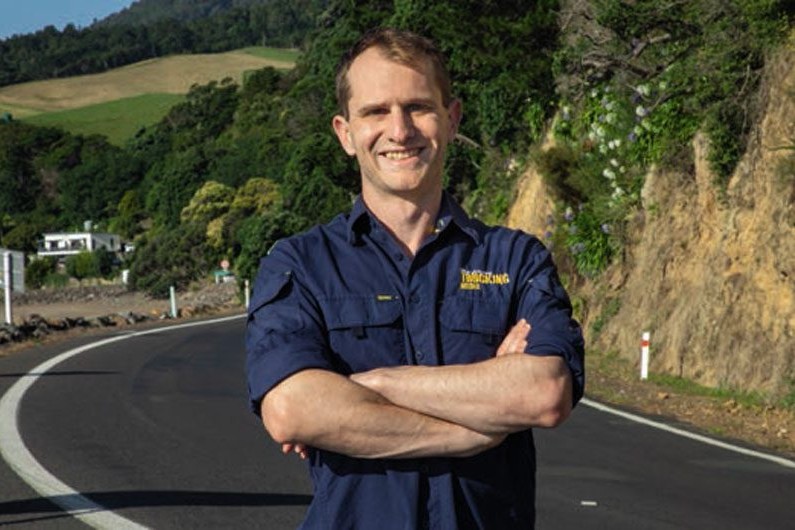
The mayhem that is our road-user and roading infrastructure continues to degenerate to absurdity. It seems there’s a determination on the part of the government, and therefore the regulator and police, to press on with strategies regardless of their obvious flaws and failures. As we know, the road toll isn’t improving, with RNZ reporting in July that the 2021 Road to Zero Monitoring report had a provisional 320 deaths and 2323 serious injuries, up on the year before at 318 and 2175.
Listening to Transport Minister Michael Wood speak at the recent Transport Summit in Christchurch exemplified the disconnect existing between this government and the reality of life beyond the halls of power.
Watching the latest round of Road to Zero advertisements hammers this home further. The condescending family-of-four advertisement and the macabre toll-booth one both begin with those about to have their day ruined driving in an exemplary fashion on pristine unblemished pavement showing no sign of sweating, leaching, breakage, or potholes. The inference being there’s no culpability on the part of the infrastructure provider and that it’s all our fault.
Last week in Taranaki, between Stratford and Eltham, the surface of SH3 was so devastated that six cars were pulled up, drivers’ changing left-front tyres, having encountered potholes that should, by rights, see someone from the upper echelon of national decision-making in court.
Then there’s the money spent on infrastructure projects that need revisiting or ones completed to an utterly substandard state, such as the ‘safety’ improvements on the Waihi to Ōmokoroa section of SH2. This is a project, exalted by Woods at the summit, that is nothing more than a disgrace, one that has taken an interminably long time to achieve. These are just a couple of examples – it is now impossible to do justice to the level of national road deterioration in a single summary. To top it off, we hear this week of an increasing deficit in Waka-Kotahi’s roading budget due to reduced road usage and changing vehicle types.
Next, driver licencing, behaviour, and motor-vehicle roadworthiness. We’ve never had more capable vehicles, and yet the tragedy on our roads continues. I’ve never supported moves to ease the process and difficulty of getting a driver’s licence beyond the tweaking of unnecessary bureaucracy. Driving a car is a privilege that’s being woefully abused on both the ability and entitlement fronts, so why would you make it easier? When I pass a police patrol unit nowadays, I simply shake my head at the appalling waste of resource that is. There’s an FTE labour unit and a car with all its kit, the officer able to monitor traffic speed for about a kilometre in either direction, and only for a short time before the public start alerting each other. The patrol units are one of the greatest political statements we see daily, the perception of action to preserve votes. We have the technology in 2022 to monitor the speed of every vehicle in the nation in real-time and act on it, yet we don’t. How important is speed, therefore? Far less important than power, obviously.
If you buy a brand-new car, it doesn’t need to front up for a warrant of fitness for three years. My Ranger is five years old, and it’s still on yearly WoFs. Can anyone point out the sanity of that?
When we’re just beginning to see the light at the end of the tunnel that was the transportation-engineering certification debacle, we’re blissfully laying the groundwork for the next catastrophe.
It all points to the fact that not everyone complicit in what happened at the Pike River mine in November 2010 learned from it.
Readers will be aware of my view that one of the West’s great mistakes is the behaviour of incarcerating wisdom in rest homes at far too early an age, allowing education and ambition to run rampant without check or critique.
Wisdom is currently playing gin rummy and bridge while we attempt to cure various societal amputations with the aspirin of an ever-more confused, boundaryless, and disconnected education. If you asked ‘Wisdom’ its opinion on the current roading and road-user situation, it would likely say, ‘Fix the bloody roads… properly, kick the arse of anyone abusing the driving privilege, and return to six-monthly warrants. Oh, and give the youth more exposure to the hierarchy present in the workplace. That’ll be a good start in reducing your road toll. Come back next week, and we’ll tell you what we think of death by a million screens”, and its role in the same problem’
All the best
Dave McCoid
Editorial Director
Read more
The energy to continue
0 Comments4 Minutes
When opportunity presents
0 Comments4 Minutes
Roadworks positivity
0 Comments4 Minutes



